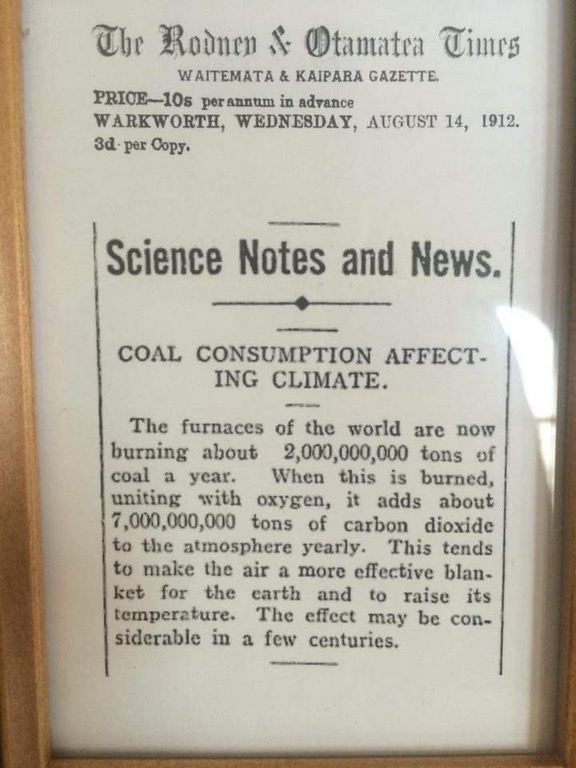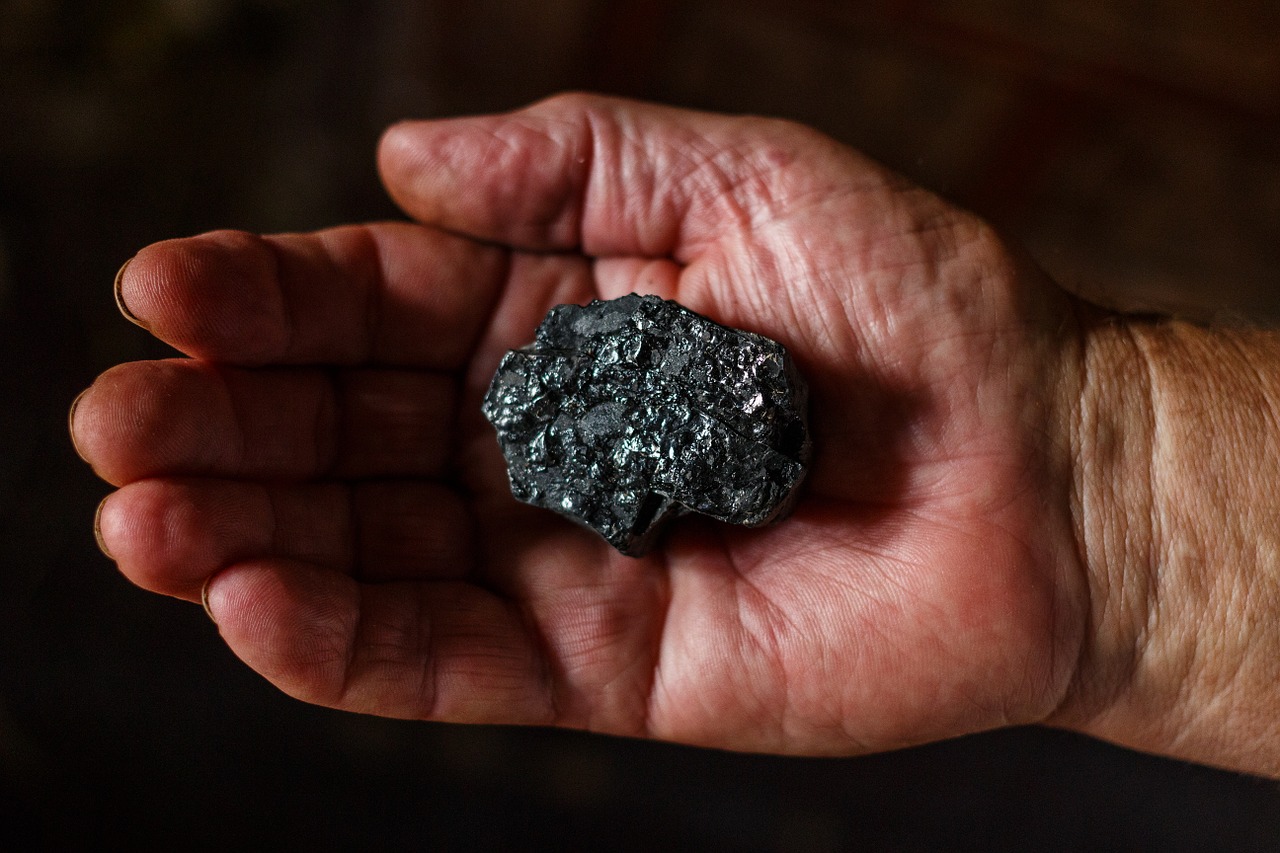Why We're Still Debating a Newspaper's Prediction 105 Years Later

By:
On August 14, 1912, a New Zealand newspaper ran a story with the headline: "COAL CONSUMPTION AFFECTING CLIMATE."
 Reddit - reddit.com
Reddit - reddit.com
More than 100 years later, that prediction—now the consensus view of the scientific community—is still being debated in the United States.
The newspaper's article briefly described how burning coal causes heat-trapping carbon dioxide emissions to blanket the atmosphere, gradually raising the Earth's temperature. At the time, the world was burning about 2 billion tons of coal each year, releasing 7 billion tons of carbon dioxide in the process, according to the paper.
"The effect may be considerable in a few centuries."
In the century since the article was published, climate scientists have found unequivocal evidence linking human activity, like the burning of fossil fuels, to climate change. Over time, that revelation has prompted many countries to enact polices aimed at reducing greenhouse gas emissions and promoting the use of alternative, renewable energy sources. Even so, global coal consumption of fossil fuels has more than doubled since 1914, according to the International Energy Agency.
 Pixabay - pixabay.com
Pixabay - pixabay.com
There's widespread recognition of climate change as a scientific fact in the international community. But in the U.S., public opinion about whether human activity has contributed to climate change has been enmeshed in partisan politics: only 15 percent of conservative Republicans believe that climate change is man-made, compared to 79 percent of liberal Democrats, according to a 2016 Pew survey.
One aspect of the 1912 article that today's scientists might take issue with is its projected timeline. The paper claims the effects of carbon dioxide emissions might be "considerable in a few centuries."
But research has demonstrated that the effects are already considerable. Glaciers are melting at an alarming rate, endangering native species and causing sea levels to rise. The oceans are warming, which has already caused irreversible damage to coral reefs and the marine life inhabiting them. Weather has become more erratic and extreme as a consequences of rising atmospheric and oceanic temperatures.
The effects are expected to worsen, but they're inarguably "considerable" a century after the paper published its prediction.
